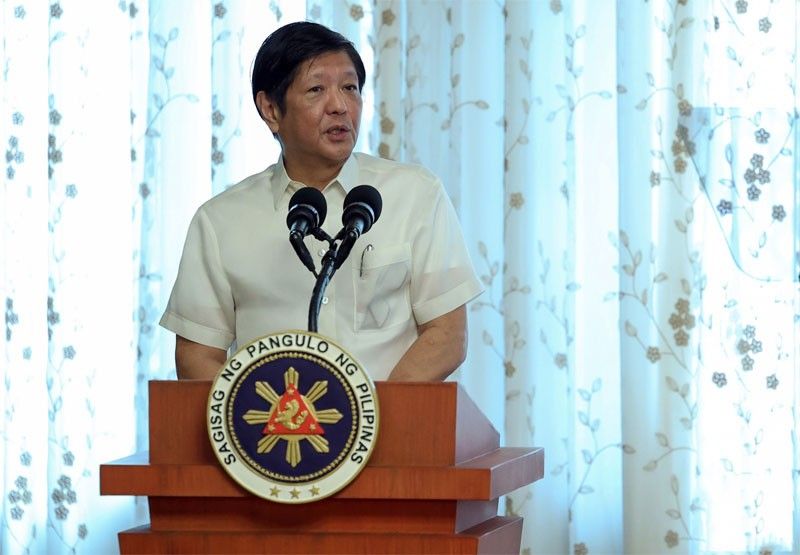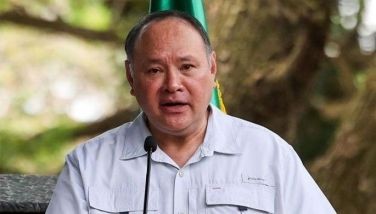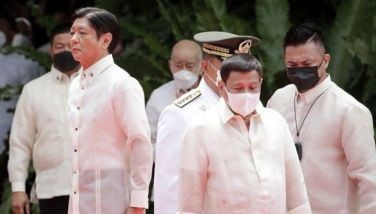Marcos trumpets Maharlika but skips mention of gov’t’s zero surplus funds — economist

MANILA, Philippines — While President Ferdinand “Bongbong” Marcos Jr. made sure to trumpet the “strategic financing” power of the recently signed Maharlika Investment Fund Act on Monday, the government has to address whether it has any idle funds that can be channeled into the wealth fund, an economist said.
In a message to Philstar.com, Enrico Patiga Villanueva, an economics lecturer at the University of the Philippines Los Baños, said that the government essentially has no surplus funds sitting idly that can prop up Maharlika, contrary to what Marcos said in his second State of the Nation Address.
“The existence of idle funds in (Government Financial Institutions) is a myth created to justify the diversion of bank funds to (the Maharlika Investment Corporation). If there are indeed idle surplus funds in the GFIs, then their leadership is not doing their job in maximizing use of funds,” Villanueva said.
Similarly, Sonny Africa of IBON Foundation, an economic state think tank, pointed out that the "so-called underutilization" of funds from state-owned banks and other GFIs "was never established."
"This is a feeble belated attempt to fend off well-founded criticism that resources are unjustifiably being diverted to the Maharlika fund," Africa said.
Marcos said on Monday that the country’s first sovereign wealth fund could be a tool to finance big-ticket infrastructure projects by tapping into the government’s underutilized funds.
Specifically, the president said: “In pooling a small fraction of the considerable but underutilized government funds, the Maharlika Fund shall be used to make high-impact and profitable investments, such as the 'Build Better More' program.”
Villanueva pointed out that the Philippines is currently in a deficit, which means that there are no surplus or underutilized funds as the government needs to borrow money or utilize other financing methods to cover the shortfall.
The country reached a budget deficit of P1.6 trillion in 2022.
Push to increase Land Bank capital points to lack of surplus funds
Villanueva added that if there were actual idle surplus funds, the government should not have pushed for the increase in the capital of the state-owned Land Bank of the Philippines (LBP) to support greater lending to agriculture and development.
“If the national government units have actual surplus funds in the GFIs, they are not doing a good job doing the programmed spending,” the economist said.
The House of Representatives in December approved on final reading a measure that hikes the paid-up capital of the LBP by P7.5 billion and of the Development Bank of the Philippines (DBP) by P2.5 billion.
In a June panel discussion, the economist also explained that state-owned banks cannot do away with their capital or its “underutilized funds” as diverting these could undermine their main mandate and affect their compliance with the Bangko Sentral ng Pilipinas.
According to Republic Act 11954, the bulk of the capital of the MIF will come from state-owned banks like LBP, which already use their “surplus” funds to fulfill their mandates.
In the case of LBP, it serves as the financing arm of the government's agrarian reform and rural development initiatives.
GFI funds not just government’s
To recall, Marcos also described the function of Maharlika in similar terms during its signing on July 18. He said then that “instincts of any financial manager is that money must work for you. It must not sit in the bank and earning…an interest rate that is almost up to the level of the cost of money and that’s why we go in and out of these accounts.”
Villanueva, however, said that not all funds in the GFIs belong to the government. “A significant portion of it belongs to government workers whose payroll are with the GFIs,” he explained.
Africa said that if the government wants to generate more funding for its projects, it should begin with increasing tax revenues, which are "the best, most stable and most reliable source of government revenue."
"If it wants to bankroll govt projects it should work harder on improving revenue generation with a more progressive tax system that makes those with the ability to pay more contribute more— meaning higher taxes on billionaire wealth, large corporations, and high-income families," he added.
Africa cited as an example the billionaire wealth tax proposal pending at the House of Representatives which is seen to give the government at least Php480 billion annually, "which is as much as the P500 billion the Maharlika fund is targeted to eventually manage."
Defenders of the MIF have touted its potential to offer the government a more substantial and diverse financial pool to draw from which can be used to fund ambitious projects, like Marcos’ infrastructure program.
Sovereign wealth funds including the MIF are managed independently of the regular budgetary oversight and public scrutiny that traditional government expenditure faces.
- Latest
- Trending






























